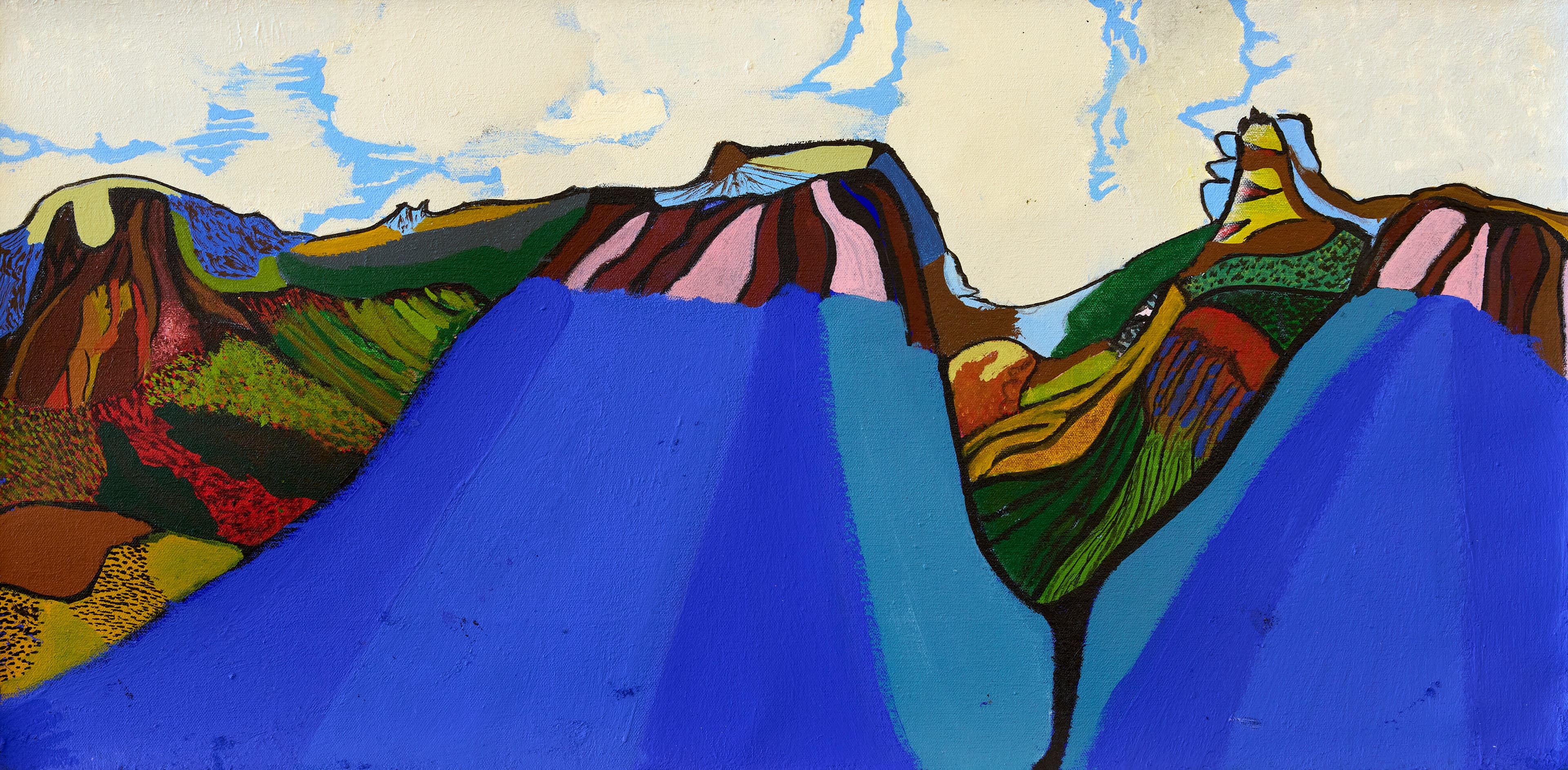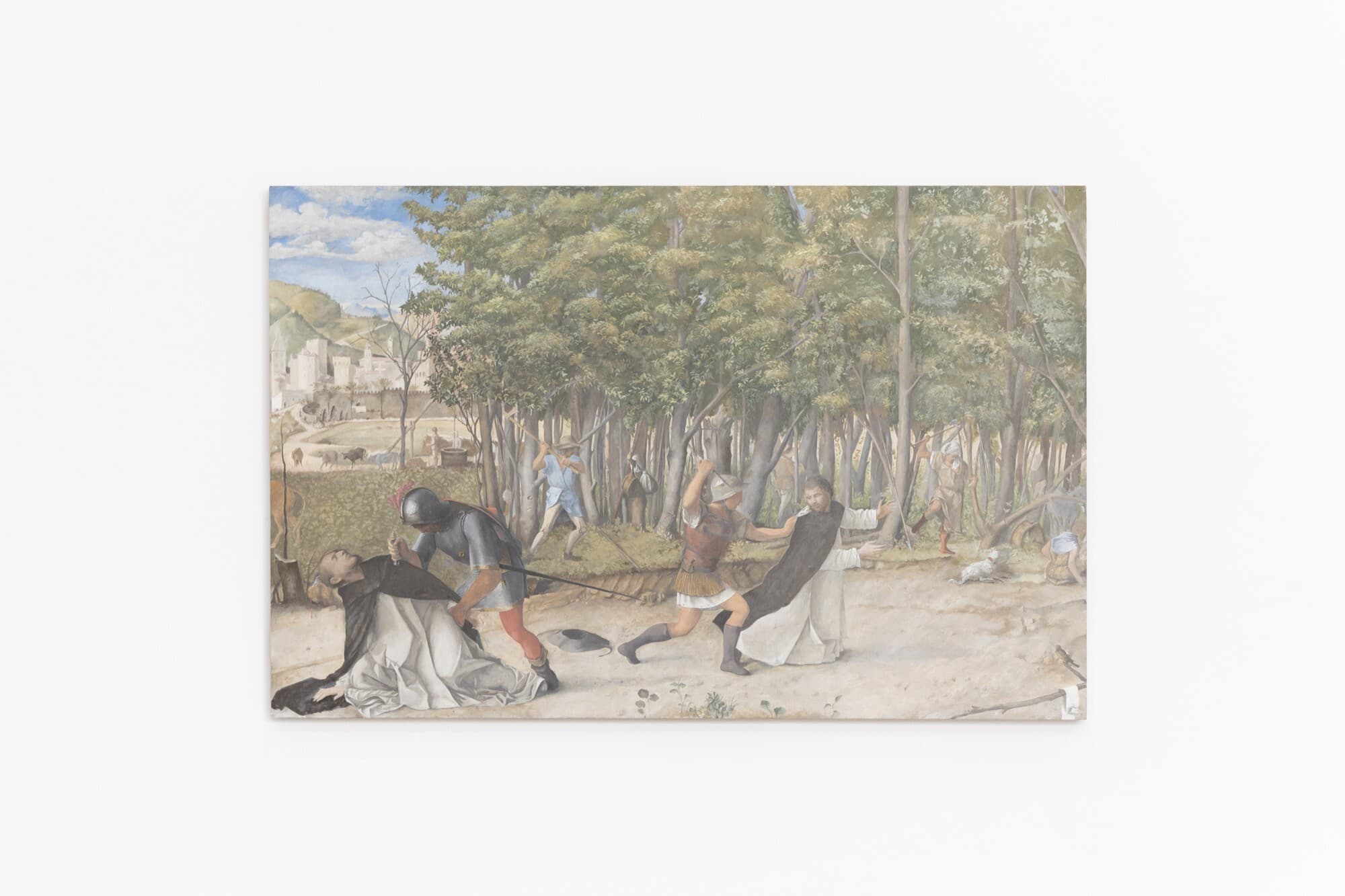Nessun Posto
Max Koetsier
Nessun Posto creates a not quite cohered space, where irreconcilable contradictions prevent the stability of place from emerging. With four pieces that avoid the neutral surveyor's contextual indifference, Tamara Baillie, Camila Galaz, Karla Pringle and Siying Zhou present space as ungraspable: too immersed in fractured memories and dislocated histories for performed lucidity to become anything but a kind of violence. Instead, they use this opacity to share what cannot be said, what cannot become either personal or general enough for clarity. This gap in legibility becomes something intimate while also being resistant to its appropriation, a space that is shared without becoming transparent.
Context is made immediate in Zhou's Untitled (from To Master Your Mother Tongue), visible from outside the building. With neon signs reflecting neighbouring shops and restaurants, the performance of hospitality is only possible by dimming the space, a gold curtain blocking light while backing the neon. A dynamic is created between presentation and transparency, between how exhibiting an identity informs how environments are experienced and altered. Opposite, Pringle's Where The Wave's Begin, silk dyed to a gothic haze, seems to beckon divination and reveals the influence of tasseography mentioned in the description. Yet this divining might not only be a look toward the future but an act of 'integration and body awareness', a discovery of one's orientation and subjectivity through ritual.
Baille's Identity and Galaz's Reperar Means to Repair each present landscape as a fragmented site of unreconciled histories. The former sculpture connects adornment with unequal hybridisation, mastery and erasure—culture as something never flowing freely but as an object whose status, masked or concealed, affects its history and power. Galaz's video gives an oblique assessment of the possibility of reparation. Is forgiveness ever an option in a landscape saturated with emotional memories, whose gestures and pathways create space to remember what has been omitted from official histories?
When an expectation is placed on art by anyone not granted the privilege of impartiality—anyone not able to allocate places and borders without suspicion—to be transparent, to decipher trauma into normative language, then an exhibition that centres the unspeakable fractures lying beneath spaces and histories is welcome. And doing so in a way that retains the intensities of experiencing an ambiguous and incomplete world in which place is always not quite ready to emerge makes Nessun Posto valuable.
Max Koetsier is studying human geography.


